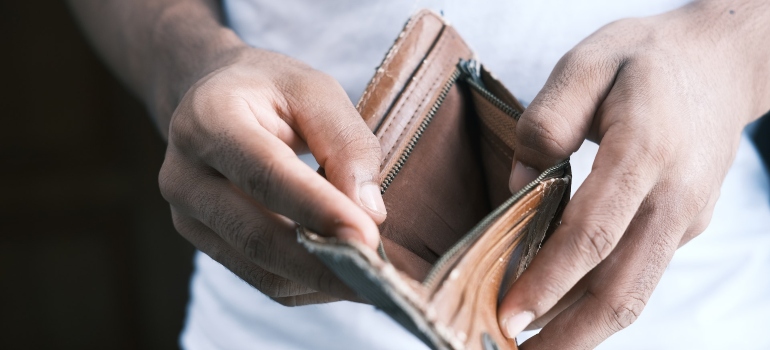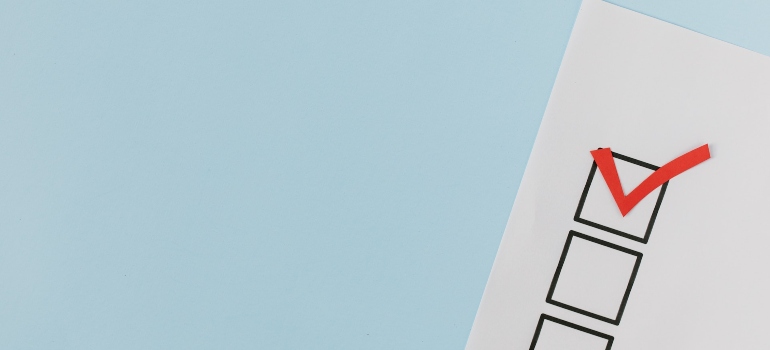If you are recovering from addiction, you may find that your finances have taken a significant hit. Addiction can lead to financial instability, leaving you with debt and bills that are difficult to manage. However, there are several steps you can take to reduce the expenses of treatments and financially recover after addiction. For additional guidance, our team at Harmony Ridge Recovery Center WV remains at your disposal.
How addiction affects finances
While most people understand the health consequences of addiction, few recognize its impact on finances. Addiction can lead to financial instability, as the cost of maintaining an addiction can quickly become unmanageable.

Loss of income
Addiction can lead to a loss of income, as individuals struggling with addiction may not be able to maintain steady employment. They may miss work due to the effects of substance use or addiction-related behavior, leading to decreased productivity and job loss. Additionally, they may be forced to quit their job due to the physical and mental effects of addiction. Losing a job can significantly impact an individual’s financial stability, as they may not have a steady source of income to rely on.
Medical expenses
Addiction can also result in high medical expenses. Individuals with substance abuse disorders may require medical treatment for withdrawal symptoms or other health issues related to their addiction. Furthermore, addiction can lead to the development of other health problems, such as heart disease, liver disease, and cancer. These medical issues require treatment, which can lead to high medical bills and significant financial stress.
Legal fees
Addiction can also lead to legal issues, resulting in high legal fees. Individuals struggling with addiction may engage in illegal behavior, such as driving under the influence, stealing to support their addiction, or selling drugs. These actions can lead to arrest and legal trouble, resulting in legal fees and fines that can be financially devastating.
Poor credit score
Addiction can also lead to poor credit scores. Individuals struggling with addiction may miss payments on bills or loans, resulting in late fees, increased interest rates, and a negative impact on their credit scores. A poor credit score can make it difficult to obtain loans or credit cards, resulting in limited access to financial resources.
Accumulated debts
Lastly, addiction can lead to accumulated debts. Individuals with addiction may borrow money from friends and family or take out loans to support their addiction, resulting in increased debt. Additionally, addiction-related behavior may lead to financial obligations, such as court-ordered fines or restitution payments. These debts can quickly accumulate, leading to significant financial stress and making it difficult to manage finances.
The role of addiction treatment in financial recovery
Seeking individual therapy for addiction can not only improve your overall health and well-being, but it can also help you achieve financial recovery by addressing the underlying issues that contribute to your addiction.

Treatment options
Below are some of the most common treatment options included in rehab in Cambridge OH:
- Medical detox: This is the first step in addiction treatment, where the individual undergoes medically supervised withdrawal from the addictive substance.
- Cognitive Behavioral Therapy (CBT) for addiction: CBT is a type of therapy that helps individuals identify and change negative thought patterns and behaviors that contribute to addiction.
- Dialectical Behavior Therapy (DBT) for addiction: DBT is a type of therapy that teaches individuals how to regulate emotions, tolerate distress, and improve interpersonal relationships, which are all crucial skills for addiction recovery.
- Dual diagnosis: Individuals with co-occurring mental health disorders and addiction can benefit from dual diagnosis treatment, which addresses both conditions simultaneously.
- Inpatient rehab: This type of addiction treatment involves living in a facility and receiving 24/7 care and support.
- Holistic therapy for addiction: This approach to addiction treatment focuses on healing the whole person, including physical, emotional, and spiritual aspects.
- Inpatient rehab: The most efficient rehab approach entails 24/7 ongoing care within the rehab facility.
- Outpatient rehab: Outpatient rehab allows individuals to receive addiction treatment while maintaining their daily routines and responsibilities.
- Family therapy: Addiction can have a significant impact on the individual’s family and loved ones. That’s why family therapy for addiction can help improve communication, rebuild relationships, and create a supportive environment for recovery.
Addiction treatment costs
Addiction treatment can be costly, which can be a barrier for many people who are struggling with addiction. However, it’s important to understand that addiction can lead to significant financial instability in the long run, which can be much more expensive than the cost of treatment. The good news is that there are cost-effective addiction treatment options that can provide effective care without breaking the bank.
One cost-effective addiction therapy option is outpatient rehab, which is often less expensive than inpatient rehab. With outpatient rehab, you attend individual or group therapy for addiction at a facility but don’t stay overnight. This makes it more flexible for people with work or family commitments, and it can also be more affordable. Outpatient rehab can provide effective treatment for mild to moderate addiction, but it may not be suitable for those with severe addiction.

In addition, many rehab facilities offer sliding scale fees based on income, making treatment more accessible to those with lower incomes. This means that the cost of treatment is adjusted according to the individual’s financial situation. This can help make treatment more affordable for people who may not be able to pay the full cost of treatment upfront. If you’re considering rehab, be sure to inquire about sliding scale fees and other payment options that may be available.
You can ease the financial burden of rehab thanks to insurance coverage options
When it comes to addiction recovery, rehab insurance coverage can be a game-changer and a way to financially recover after addiction more easily. Not only does it alleviate financial stress, but it also provides a path to quality care. Here are some major insurance coverage options to consider.
The benefits of rehab insurance coverage
Without insurance, rehab can be an expensive endeavor, often running into tens of thousands of dollars. This financial burden can deter people from seeking the help they need. Rehab insurance coverage, however, can reduce out-of-pocket expenses or eliminate them altogether.
Moreover, insurance providers have partnerships with reputable rehab centers, ensuring that policyholders receive high-quality care. With rehab insurance coverage, you can access a range of services, including detoxification, counseling, and medication-assisted treatment.
Major insurance coverage options
When it comes to rehab insurance coverage, there are several options available. Private insurance policies cover addiction treatment as part of their mental health benefits. Some of them are:
- Humana rehab coverage
- Blue Cross Blue Shield drug rehab coverage
- Cigna
- Aetna
- Tricare coverage for veterans and their families
- PEIA rehab coverage
- FMLA rehab coverage
The amount of coverage varies by policy, so it’s best to check with your insurance provider to see what is covered.
Employer-provided insurance plans also offer rehab insurance coverage, though the extent of coverage depends on the employer’s policy. Furthermore, state-based insurance exchanges provide insurance coverage for people who cannot afford private insurance.
Medicare and Medicaid
Medicare and Medicaid are federal programs that provide rehab insurance coverage to eligible individuals:
- Medicare, available to people over 65 or those with certain disabilities, covers inpatient rehab treatment and some outpatient treatment.
- Medicaid, on the other hand, is available to people with low income and covers rehab services that are deemed medically necessary.
Check with your chosen rehab facility about their insurance offer
Before deciding on a particular rehab facility, verify if the facility accepts your insurance. While many rehab centers accept most private insurance plans, not all of them accept Medicaid or Medicare, for instance. It’s, therefore, necessary to seek drug rehab that accepts Tricare or any other insurance plan you’re eligible for. Aside from confirming the types of insurance the rehab center accepts, you may also want to inquire about the extent of coverage offered by your policy. Some insurance policies may only cover a portion of your treatment, while others may cover the entire cost.

Furthermore, each rehab center near Athens OH has specific requirements for insurance coverage, such as preauthorization or referral from a primary care physician. Knowing these details in advance can help you avoid any potential delays or issues that may arise during the treatment process. Additionally, it is worth asking the rehab center about the services they offer and how they can tailor their programs to meet your specific needs. Some facilities may specialize in particular areas of addiction treatment, such as dual diagnosis or holistic approaches, while others may have a more general treatment approach. By learning more about the facility’s offerings, you can choose a rehab center that aligns with your treatment goals and preferences.
Tips for financial recovery after addiction
The process of rebuilding your financial health after rehab can seem overwhelming. However, there are several steps you can take to get back on track financially.
Financial counseling
One of the best ways to start the process is to seek out the help of a financial counselor. They can help you identify the areas of your finances that need the most attention and help you develop a plan to address them. They can also provide support and guidance as you work through your recovery.

Creating a budget
Creating a budget is essential to managing your finances. It helps you see where your money is going and where you can make cuts or changes. When creating your budget, be sure to include all of your expenses, including any debts or outstanding bills. This will help you get a clear picture of your financial situation and identify areas where you can cut back.
Seeking financial assistance and rebuilding credit
If you have outstanding debts or bills, consider seeking financial assistance. Many organizations offer financial assistance programs, including debt management plans and financial education courses. Additionally, rebuilding your credit is essential to your financial recovery. This can be done by paying off debts, making on-time payments, and maintaining a low credit utilization rate.
Setting achievable goals
Setting achievable goals is an essential part of your financial recovery. When setting goals, be realistic and specific. For example, rather than setting a goal to pay off all of your debt at once, break it down into smaller, more manageable goals. This will help you stay motivated and make progress toward your financial goals.
Seeking support from professionals and loved ones
Finally, seeking support from professionals and loved ones can make a significant difference in your financial recovery. Consider joining a support group or working with a financial coach to help you stay on track. Additionally, don’t be afraid to reach out to loved ones for support and encouragement.

Learn about resources for financial recovery in WV
West Virginia offers several resources that can help individuals financially recover after addiction. One such organization is the West Virginia Coalition to End Homelessness, which provides a variety of services to help those struggling with financial insecurity. The West Virginia Department of Health and Human Resources also offers several programs, including SNAP (Supplemental Nutrition Assistance Program), which helps low-income families purchase food, and TANF (Temporary Assistance for Needy Families), which provides temporary financial assistance to eligible families with children.
Additionally, many local credit unions and financial institutions offer financial education classes and counseling services to help individuals manage their finances. Eligibility requirements for these programs vary, so it is important to research each program’s specific requirements and application process. You can access more information about these resources by visiting the West Virginia Department of Health and Human Resources website or contacting local organizations directly.
Financially recover after addiction with the right help
While it might take time to financially recover after addiction, it’s possible to achieve financial stability and continue leading a sober lifestyle. With the help of the aforementioned tips, you can ease the financial burden of rehab and aftercare treatment. Also, you can set a new foundation for financial stability and return to the workforce. Just keep in mind that repairing your financial situation after rehab is a process. Therefore, don’t hesitate to rely on your loved ones and seek helpful resources available to you.



